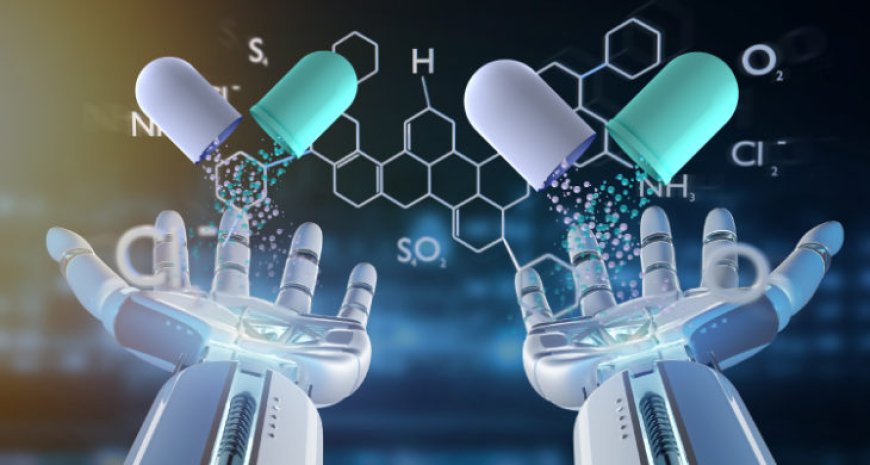AI-Powered Drug Discovery: How Machines Are Revolutionizing Medicine
Discover how AI is transforming drug discovery by accelerating research, repurposing drugs, and creating novel treatments faster than ever.

Can Artificial Intelligence Find Cures Faster Than Humans?
In the race to cure diseases, traditional drug discovery is slow, expensive, and often inefficient. But what if machines could accelerate this process—analyzing millions of compounds in days instead of years? Enter AI-powered drug discovery, a groundbreaking approach that’s transforming medicine.
Pharmaceutical giants, biotech startups, and research institutions are investing heavily in artificial intelligence (AI) to find new drugs faster, cheaper, and more accurately than ever before. Could AI hold the key to curing diseases that have long eluded us? Let’s dive into the future of AI-driven medicine.
What is AI-Powered Drug Discovery?
AI-powered drug discovery uses machine learning, deep learning, and data analytics to identify potential drug candidates by analyzing massive datasets. Unlike traditional drug discovery—where scientists spend years testing thousands of compounds—AI can:
✅ Analyze molecular structures in minutes
✅ Predict how drugs will interact with the human body
✅ Identify new uses for existing drugs
✅ Reduce trial-and-error testing
This means AI isn’t just helping scientists—it’s revolutionizing how we develop treatments, from antibiotics to cancer therapies.
How AI is Transforming Drug Discovery
The traditional drug discovery process takes 10–15 years and costs over $2.6 billion per drug (source). AI is changing this by:
1. Speeding Up Drug Screening
AI can analyze millions of chemical compounds in days, narrowing them down to the most promising candidates. Companies like Atomwise use AI-powered simulations to test how molecules interact with disease proteins, cutting discovery time from years to months (source).
2. Repurposing Existing Drugs
AI is excellent at finding new uses for old drugs. During the COVID-19 pandemic, AI helped researchers identify drugs like Remdesivir as potential treatments in record time. Platforms like BenevolentAI are leading the way in repurposing drugs for diseases like Alzheimer’s and Parkinson’s (source).
3. Designing Novel Drugs
AI doesn’t just find drugs—it creates them. In 2021, Insilico Medicine used AI to design a new drug for idiopathic pulmonary fibrosis in just 46 days—a process that typically takes years (source).
4. Improving Clinical Trials
AI helps pharmaceutical companies predict which patients will respond best to treatments, making clinical trials more efficient and reducing failure rates. This is critical because 90% of drugs fail in trials, often due to poor patient selection.
Breakthroughs in AI-Powered Drug Discovery
1. AI and Antibiotic Resistance
Superbugs resistant to antibiotics are a growing crisis. In 2020, MIT researchers used AI to discover Halicin, a powerful antibiotic that kills drug-resistant bacteria. It took AI just a few hours to identify Halicin, proving its potential to combat antibiotic resistance (source).
2. AI’s Role in Cancer Drug Development
Companies like Exscientia are developing AI-designed cancer drugs, with some already in clinical trials. AI models can predict how cancer cells mutate, helping researchers stay ahead in the fight against the disease (source).
3. AI-Powered COVID-19 Treatments
During the pandemic, AI tools helped identify antiviral compounds and accelerate vaccine development. DeepMind’s AlphaFold revolutionized drug discovery by predicting protein structures with near-human accuracy, aiding in vaccine research (source).
Challenges and Ethical Concerns
Despite its promise, AI-powered drug discovery has challenges:
? Data Bias: AI models are only as good as the data they’re trained on. If the data is biased, drug discoveries may be flawed.
? Regulatory Hurdles: AI-designed drugs must pass FDA and EMA regulations, which aren’t yet fully adapted to AI-driven discoveries.
? Intellectual Property Issues: Who owns an AI-generated drug—the company, the scientists, or the AI itself? Legal frameworks are still evolving.
The Future of AI in Drug Discovery
AI is set to transform medicine over the next decade. As computational power grows, we can expect:
? Faster development of personalized medicine
? New cures for rare and untreatable diseases
? AI-driven drug discovery becoming the industry standard
Pharmaceutical companies are already investing billions in AI, with AI-designed drugs expected to reach the market within the next few years. If AI can cut drug development time in half, it could save millions of lives while reducing costs.
Conclusion: A New Era of Medicine
AI-powered drug discovery isn’t science fiction—it’s happening now. Machines are revolutionizing medicine, offering hope for faster cures and more effective treatments. While challenges remain, the potential benefits are too big to ignore.
Could AI be the key to curing diseases like Alzheimer’s, cancer, and antibiotic-resistant infections? If its current progress is any indication, the answer is a resounding YES.
What's Your Reaction?
 Like
0
Like
0
 Dislike
0
Dislike
0
 Love
0
Love
0
 Funny
0
Funny
0
 Angry
0
Angry
0
 Sad
0
Sad
0
 Wow
0
Wow
0



















































